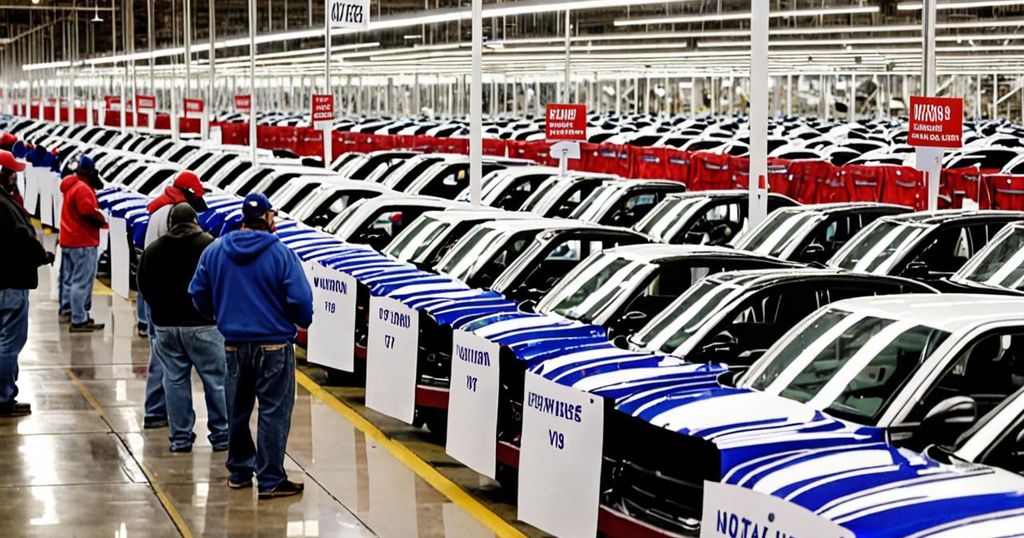The United Auto Workers union recently conducted a vote, with 97% of participants approving the potential for strikes against General Motors, Ford, and Stellantis. This action reflects the union’s efforts to regain concessions lost over a decade ago and safeguard members in light of the industry’s transition to electric vehicles. With a combined total of 145,000 UAW members at the three companies, the potential impact of these strikes cannot be underestimated.
UAW President Shawn Fain expressed the frustration of union members, highlighting the significant disparity between workers living paycheck to paycheck and corporate leaders reaping substantial financial gains. However, the approval of possible strikes does not guarantee their occurrence. Instead, it serves as a negotiation tactic to strengthen union leadership in the event that an agreement cannot be reached with management before the contract expires.
The automakers – General Motors, Ford, and Stellantis – have expressed their commitment to reaching agreements with the union without resorting to strikes. They emphasize the need for positive outcomes that benefit all stakeholders, including employees, customers, and the community at large. Despite mounting concerns, labor negotiations typically culminate in agreements rather than strikes, as evidenced by recent trends in the United States.
In response to these developments, President Joe Biden has expressed his concerns and weighed in on the negotiations, emphasizing the importance of prioritizing job security and equitable salaries for workers during industry transitions. The White House, while maintaining a neutral stance, recognizes the significance of addressing workers’ needs and supporting the union’s efforts to secure fair compensation and protections against job losses.
As the contracts’ expiration date approaches, UAW President Shawn Fain and the union are advocating for an ambitious set of objectives in this year’s negotiations. They aim to reinstate contract provisions relinquished during the 2007 negotiations, including traditional pension plans and cost-of-living adjustments. Additionally, the union seeks to address wage disparities, job security, and plant closures, particularly in the context of the industry’s shift towards electric vehicles.
A central concern is the unequal compensation for employees at EV battery plants compared to those at traditional automotive plants covered by the current contracts. The UAW is urging automakers to ensure a “just transition” to EVs, advocating for comparable wages at battery plants to align with UAW standards. A recent tentative agreement between the union and the joint venture operating the battery plant in Warren, Ohio, represents a significant step towards addressing these disparities.
The upcoming weeks leading to the contract expiration present a critical period for the UAW and automakers to navigate these negotiations and arrive at mutually beneficial agreements. The prospect of strikes serves as a powerful reminder of the issues at stake for workers and the challenges of adapting to a rapidly changing industry landscape.
The-CNN-Wire™ & © 2023 Cable News Network, Inc., a Warner Bros. Discovery Company. All rights reserved.



